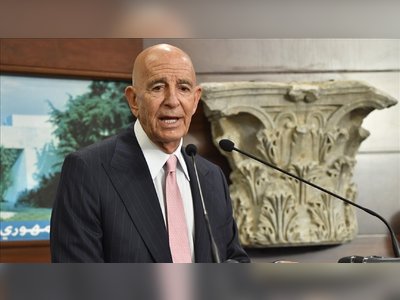
World must be ready to respond to next pandemic: WHO chief
Although COVID-19 may no longer be a global public health emergency, countries must still strengthen response to the disease and prepare for future pandemics and other threats, the Director-General of the World Health Organization (WHO) said on Monday in Geneva.
WHO chief Tedros Adhanom Ghebreyesus was delivering his report to the 76th World Health Assembly, the UN agency’s decision-making body, which is meeting this week.
“The end of COVID-19 as a global health emergency is not the end of COVID-19 as a global health threat,” Tedros told member states.
“The threat of another variant emerging that causes new surges of disease and death remains, and the threat of another pathogen emerging with even deadlier potential remains.”
Furthermore, in the face of overlapping and converging crises, “pandemics are far from the only threat we face”, he added, underscoring the need for effective global mechanisms that address and respond to emergencies of all kinds.
“When the next pandemic comes knocking – and it will – we must be ready to answer decisively, collectively, and equitably,” he advised.
Tedros said COVID-19 had significant implications for health-related targets under the Sustainable Development Goals (SDGs), which have a deadline of 2030.
The pandemic also affected progress towards the Triple Billion targets, announced at the 2017 World Health Assembly.
The five-year initiative calls for ensuring one billion more people have universal health coverage, a billion more are better protected from health emergencies, and another billion more enjoy better health and wellbeing.
Tedros reported that countries have made progress on universal health coverage, with some 477 million people now benefitting. However, he warned that if current trends continue, fewer than half the world’s people will be covered by the end of the decade, “meaning we must at least double the pace”.
COVID-19 also showed that eight billion people — basically everyone on the planet — need to be better protected in emergencies.
“The pandemic has blown us off course, but it has shown us why the SDGs must remain our north star, and why we must pursue them with the same urgency and determination with which we countered the pandemic,” he said.
Tedros also highlighted several achievements that have been made over the past year in what he called the “five Ps”: promoting, providing, protecting, powering, and performing for health.
Countries have taken action to promote health by preventing disease and addressing their root causes, for example. Between 2017 and 2022, 133 governments increased or introduced a new tax on products that harm health, such as tobacco and sugary drinks.
“We also see encouraging progress in eliminating industrially-produced trans-fat from the global food supply,” he said. “Many countries have also made impressive progress in reducing salt intake, a leading risk factor for cardiovascular disease.”
On protection, Tedros noted that with the end of COVID-19 and mpox as global public health emergencies, only polio now remains.
Following an all-time low of five wild poliovirus cases in 2021, numbers increased last year, with 20 cases in Pakistan, two in Afghanistan, and eight in Mozambique.
He stressed that WHO and partners “remain steadfastly committed to finishing the job of consigning polio to history”.
Tedros concluded his remarks by urging countries to “pick up the pace of progress” on the Triple Billion and health-related SDG targets.
He called for urgent and constructive negotiations on the new global pandemic accord and the International Health Regulations (IHR), the treaty that governs preparedness and response to health emergencies, “so the world will never again have to face the devastation of a pandemic like COVID-19”.
He also asked countries to support a 20 percent increase in their contributions to support the work of WHO.
“The end of COVID-19 as a global health emergency is not the end of COVID-19 as a global health threat,” Tedros told member states.
“The threat of another variant emerging that causes new surges of disease and death remains, and the threat of another pathogen emerging with even deadlier potential remains.”
Furthermore, in the face of overlapping and converging crises, “pandemics are far from the only threat we face”, he added, underscoring the need for effective global mechanisms that address and respond to emergencies of all kinds.
“When the next pandemic comes knocking – and it will – we must be ready to answer decisively, collectively, and equitably,” he advised.
Tedros said COVID-19 had significant implications for health-related targets under the Sustainable Development Goals (SDGs), which have a deadline of 2030.
The pandemic also affected progress towards the Triple Billion targets, announced at the 2017 World Health Assembly.
The five-year initiative calls for ensuring one billion more people have universal health coverage, a billion more are better protected from health emergencies, and another billion more enjoy better health and wellbeing.
Tedros reported that countries have made progress on universal health coverage, with some 477 million people now benefitting. However, he warned that if current trends continue, fewer than half the world’s people will be covered by the end of the decade, “meaning we must at least double the pace”.
COVID-19 also showed that eight billion people — basically everyone on the planet — need to be better protected in emergencies.
“The pandemic has blown us off course, but it has shown us why the SDGs must remain our north star, and why we must pursue them with the same urgency and determination with which we countered the pandemic,” he said.
Tedros also highlighted several achievements that have been made over the past year in what he called the “five Ps”: promoting, providing, protecting, powering, and performing for health.
Countries have taken action to promote health by preventing disease and addressing their root causes, for example. Between 2017 and 2022, 133 governments increased or introduced a new tax on products that harm health, such as tobacco and sugary drinks.
“We also see encouraging progress in eliminating industrially-produced trans-fat from the global food supply,” he said. “Many countries have also made impressive progress in reducing salt intake, a leading risk factor for cardiovascular disease.”
On protection, Tedros noted that with the end of COVID-19 and mpox as global public health emergencies, only polio now remains.
Following an all-time low of five wild poliovirus cases in 2021, numbers increased last year, with 20 cases in Pakistan, two in Afghanistan, and eight in Mozambique.
He stressed that WHO and partners “remain steadfastly committed to finishing the job of consigning polio to history”.
Tedros concluded his remarks by urging countries to “pick up the pace of progress” on the Triple Billion and health-related SDG targets.
He called for urgent and constructive negotiations on the new global pandemic accord and the International Health Regulations (IHR), the treaty that governs preparedness and response to health emergencies, “so the world will never again have to face the devastation of a pandemic like COVID-19”.
He also asked countries to support a 20 percent increase in their contributions to support the work of WHO.











